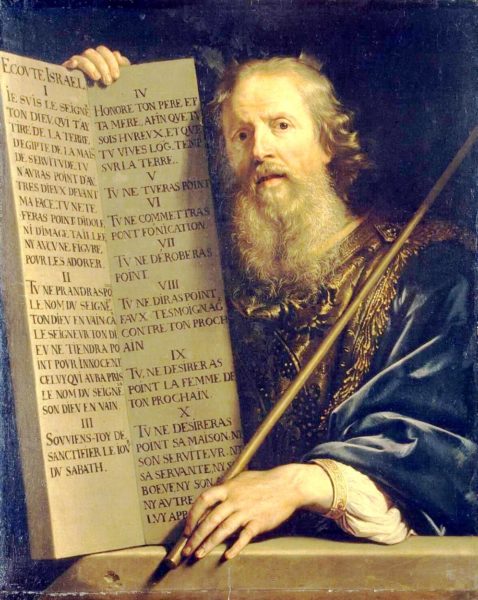No intro today, guys. I have a sick little girl beside me. Poor little Arleen, my grand daughter, after only two days of pre-k, has come down with a virus. Typical. So let’s just jump right in.
Me: Now, the plagues—what was that all about? Was that by the hand of God?
Erik (leaning over; he puts his hand on Moses’s shoulder): Remember, my mom is literal, so just talk to her.
I laugh.
Me: Well, I’m getting these questions from Wikipedia, so no wonder it sounds so literal!
Jamie laughs.
Moses: Not all of them were by the hand of God.
Me: Okay.
(Long pause)
Jamie: Sorry, he just gave me a bunch of information, so we’re just going to sift through this. He says that some of these were weather patterns; some were Earth’s natural doings, but most people believe God was in control of these as well. But that came from the fact that there were no explanations for weather patterns and why the Earth’s atmosphere was adjusting or doing what it was. So, this is why we have that innate understanding that God also has control over that.
Moses: Mother Earth has her own soul and identity of herself, though God does encourage her to be healthy. He does not encourage her to bid his doings, neither does he do that with any human beings. It is only out of willingness that it is ever done.
Me: Ah, okay.
Moses: So, some of those plagues were Mother Earth and some of those were signs from God.
Me: And what was the purpose of those signs?
Moses: To remind people that there is a greater energy; to remind people that they are human. It was not out of fear to scare them into being small. It was done to remind them of their position, showing them that indeed there is more.
Erik (leaning over): So, did you really live that long?
Me: Yeah I heard that he wandered around for forty years—first of all I want to know why he did that—and that he lived to be 120 years old.
Jamie: One hundred and twenty? Earth years? Didn’t people back then, um wasn’t there life expectancy really short?
Me: I thought so—like in the thirties or something.
Erik (to Moses): So, did you outlive four generations?
Me: First, why did he wander around that long?
Moses: The documentation of time about my life was exaggerated. I did live to be a much older person.
Erik: So how many generations?
Moses: I outlived three generations, living to my 90s.
Erik (to Moses): What do you contribute that to?
Moses: The light of God.
Erik: So, is that energy healing?
Me: Yeah, is it?
Moses: Today, I would call that prayer, affirmation, energy healing—the connection to the energy source that we are made from.
Me: Hmm. And why did you wander around for 40 years?
Moses: It was for many reasons.
Jamie: He’s giving us three reasons. One is he found that when he was on his own, to his own accord, to his own likes and dislikes, he was able to communicate with God. That was his ultimate desire—to be connected to God.
Moses: When I found myself in a culture or in an area, I began to adapt to what was around me, and it narrowed my understanding of who I was.
Me: Hmm. Okay. So, you led your people out of Egypt across the Red Sea; did you really part the Red Sea and lead them to Mount Sinai?
Moses: I want to correct you. Please do not call them “my people.”
Me: Oh! Sorry. My bad. What would you like me to call them?
Moses, You can call them anything but that. I do not claim them to be mine. I am a part of what they believe in; I believe in what they believe in, when we were together I was neither greater nor less than them.
Jamie: There’s a very humble sense to him.
Me: Yeah, it sounds like it.
Jamie: He’s talking about the parting of the seas.
(Pause)
Jamie: Erik is telling him something. It’s kind of cool, actually.
Erik: Explain it how you experienced it while you were there. What was the situation like?
Me: Great idea!
Jamie: He’s comparing it to extreme tides and that they’re—
(Pause)
Jamie (to Moses): So, what do you call that?
(Pause)
Jamie: Like a partial sandbar, partial, um—sandbar, right? Higher levels than the sea area?
Me: Yeah?
Moses: This was not—
Jamie: God, I can hear him so clear in my head, and then when I try to open my mouth to say what he’s saying, it lies so flat. Whuck.
I laugh.
Jamie: Because I can see it in my head; I see a tide, but what surprises me is tides go into the coastline and then they go out.
Me: Okay.
Jamie: What I’m seeing is kind of a separation, you know, like between a bay and an ocean.
Me: Right, right. Ah!
Jamie: When the tides are low, they both pull back.
Me: I see!
Jamie: I don’t know the location of where they’re standing geographically, but I wonder—anyways, it’s a possibility, um, there are high sand parts.
Moses: Yes, the waters did pull away so that we could, by foot, walk on land to safety, and behind us, the water rushed forward to protect us. It was as if Mother Earth and God had agreed that they is how they were going to protect these lives.
Me: Are you saying that that was a contractual agreement between Mother Earth and God?
Moses: Yes.
Me: And did the soldiers that were following them die?
Moses (smiling): I know many of them got wet.
Me (giggling): Oh, okay.
Moses: Yes, many of them did not survive the crossing as we did.



